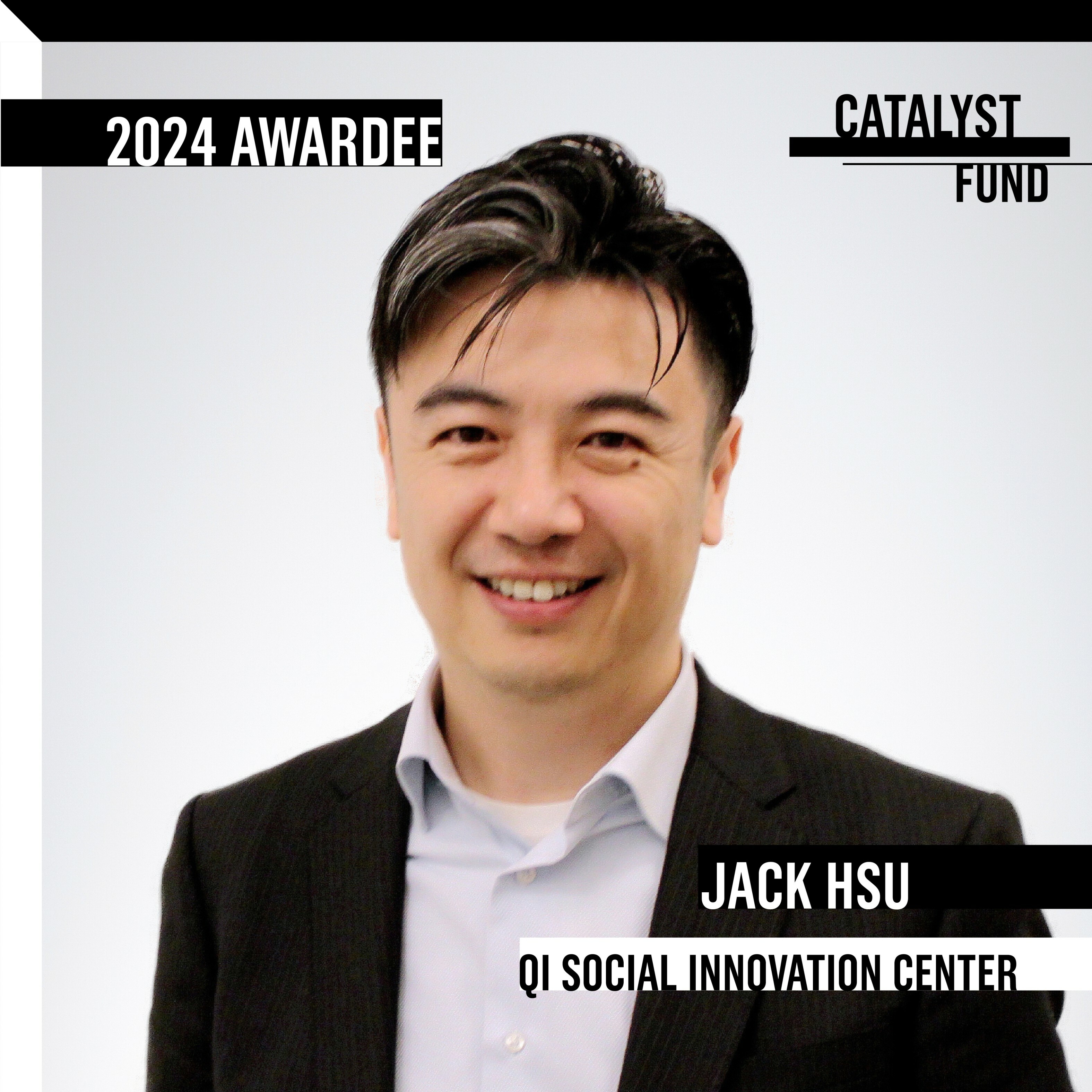Qi Social Innovation Center: Unleashing Social Change with China's Youth
2024 Catalyst Fund Awardee
Jack Hsu
Venture
Qi Social Innovation CenterProgram
Catalyst FundLocation
China
Year
2024CATALYST FUND AWARDEE
Jack Hsu was intimately familiar with the impacts of social innovation in his own life. In 1984, he participated in an education experiment in Singapore which encouraged students to pursue creative projects rather than the traditional academic curriculum. The result: a disproportionate number of pursuits outside of the norm, including professional chess, art history, and education rather than more traditional careers. Moved by this experience, Jack founded the Qi Social Innovation Center to cultivate social innovation in China youth. The Center introduces students at every academic level to the power of creative change and exposes youth to their potential for building a better and more humane society. The Center intends to redefine success for students, teaching that true growth comes not solely from individual accomplishments, but from building the capacity of one’s community.
The prevailing bias is that students are too young to change the world. We are underestimating them. They all have the potential to change the world.
Jack was acutely aware of how previous efforts to promote social innovation in China have struggled. Referred to as the “Nobel Prize for College Students,” the Hult Prize is an annual $1 million prize awarded to college students working to solve pressing social issues through innovative means. The prize is one of the largest social innovation awards globally for college students and challenges young people to develop social ventures, connecting them with some of the world’s brightest young minds. Although present in China starting in 2016, Jack saw that the prize eventually abandoned its efforts in the country in 2020, claiming that Chinese students were not yet “ready” for social innovation. Prize administration pointed to a problematic trend among Chinese applicants being motivated by personal gain through resumé accolades and prize money. In their departure they called out a need to cultivate a social innovation mindset at a younger age, a call that Jack took to heart.
As the founder and CEO of the Ivy Education Group, a premier education enrichment provider, Jack has firsthand experience with the potential of youth. Therefore, the Qi Social Innovation Center passionately believes all students can be taught the courage, creativity, and innovation it takes to create social change. Social change, as defined by the center, is multidisciplinary and involves developing values-based competencies: being (emotional intelligence, drive, and ingenuity), connecting (empathic listening, social intelligence, and social storytelling), and innovating (design thinking, driven sustainability, and systems change).
100,000
students per year will be reached by Projects for Change
10,000
students per year will be reached by Ventures for Change
20
students per year will be reached by the Fellowship for Change
The capacity to develop these competencies exists at every age, and the center is intentional in its neutral stance regarding politics and religious affiliation. To this end, students are engaged at every level. At the middle school level, the center guides students through modules to identify social problems and ideate solutions. This process encourages a mindset in which students think more broadly about society and their individual and collective roles in change-making. After igniting this type of creative thinking, students are invited to Venture for Change, a learning summit where middle and high school students are challenged to pitch a social venture and receive startup funding. Finally, the Fellowship for Change tackles questions of depth and scale, and encourages students to envision how they will adapt their ventures for sustained impact through community-based participation, collaboration, investigation, and innovative design. One part of this process focuses on storytelling and impact measurement, inspiring students to share their learnings and frame critical issues as a call to action. Frequent check-ins with social impact mentors bolsters participants’ skills and fosters an intergenerational community of social entrepreneurs. In fact, academic staff and parents have been similarly impacted through social impact workshops and training, with 91% of parents now believing it is important for their students to have a social innovation mindset.
It is my dream to touch 100 million youth in China and beyond on social innovation. I hope to see youth expand their definition of success to include being of service to others.

Jack is the Founder and CEO of the Ivy Education Group, a K-12 education provider dedicated to building and investing in premier educational and enrichment services for bilingual kindergartens across four cities. He serves on the Advisory Board for the Columbia Global Center in Beijing, a local hub for purpose-driven education, and founded the Qi Social Innovation Center to cultivate a generation of young social innovators ages 13-18 in China and beyond.
Jack Hsu and Qi Center youth at the Columbia Global Center
Qi Center youth participants